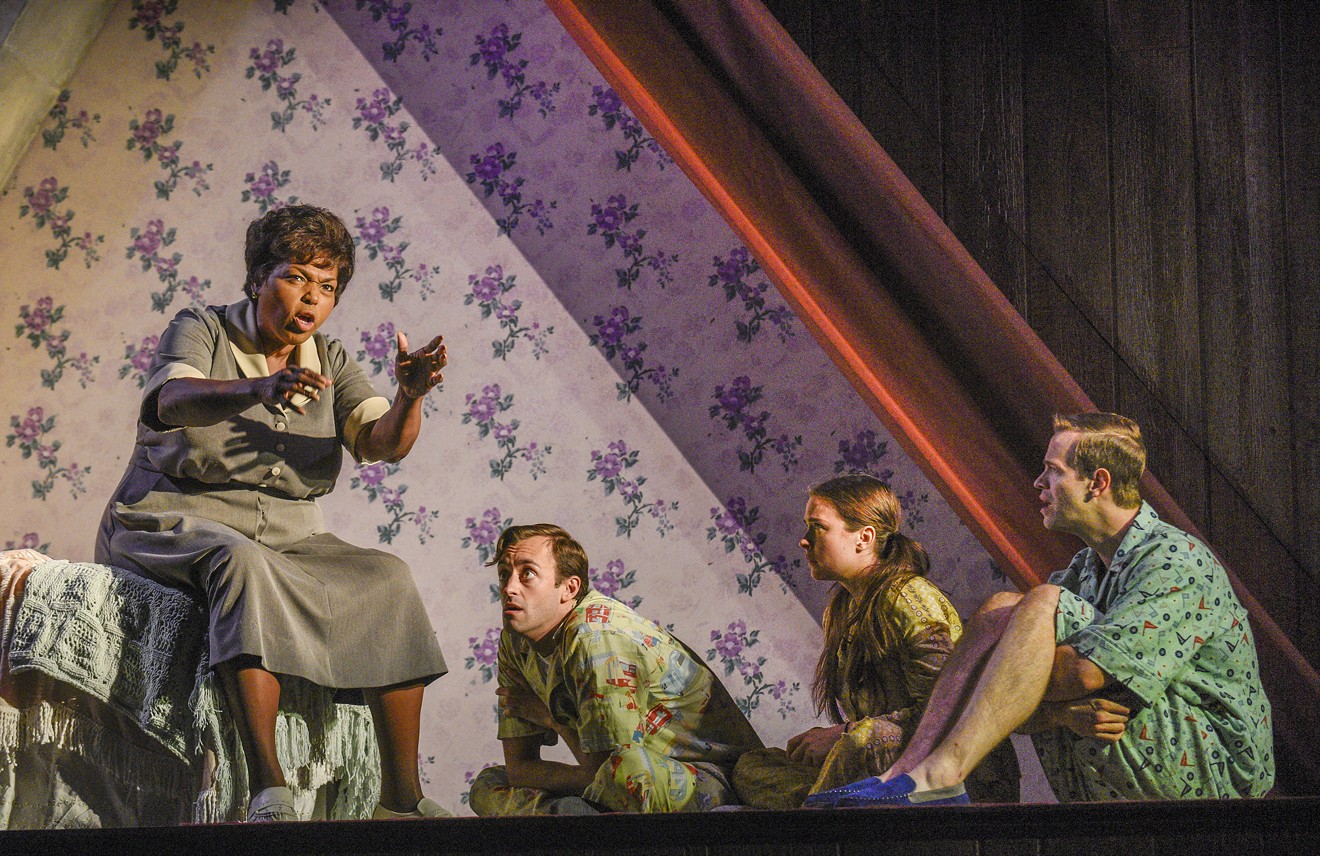Miller, Mississippi paints a harrowing portrait of a politically active, white family as the civil rights movement shakes the foundations of Southern nobility. The Wyly Theatre’s sixth floor is arranged to place the audience in the family’s living room — the first row actually on the carpet — as the years sweep by.
The patriarch is the first to die. In his absence, the inner workings of family life reveal the inherited damages passed on to his widow and three children. This play is about what’s passed from generation to generation: the ideals, the language, the violence, the damage, the hate, the fear, the pride, the shame, the rage, the death. And it’s hard to watch the toll this world takes on the women in the house as the years are ripped from the calendars that frame the stage.The experience of watching Miller, Mississippi would be described in contemporary language as "triggering." Yet the conversations audiences leave the theater with make a defense for the usefulness of triggers.
tweet this
Borrowing the structure of William Faulkner’s The Sound and the Fury, the play uses the declining family as metaphor for the shifting landscape in the United States of the 1960s and '70s. As the news rolls in through the television set, the effects of the outside world manifest differently in each family member.
The oldest son, Thomas (Alex Organ), perpetuates the racism and sexism of patriarchal white supremacy, abusing his younger sister, Becky (Leah Karpel), and openly using the n-word in front of their black maid, Doris (Liz Mikel). The mother, Mildred (Sally Nystuen Vahle), passively accepts the violence and racism, scolding the blacks on television by saying, “If you go looking for trouble… .” The youngest son, John (Dylan Godwin), looks for ways to help the movement.
Killebrew illuminates the themes of the play through the language of each character. Mildred walks around the house attributing her thoughts to other people: “You know what they say.” Thomas excuses his despicable behavior toward his sister and demands her silence: “You don’t know the way things are. Don’t say anything.”
For all the talking in the house, the silence speaks the loudest: Doris’ painful silence at the casual brushing off of the violent crimes against black people, Becky’s silence about her brother’s abuse, the mother’s silence about her knowledge that Becky is being abused, the way Thomas silences the other family members about the violence he enacts. And then the silent role of the audience leaves all in attendance with the icky feeling of complicity.
This play is damn good and feels necessary and important in the complicated world it’s been born into this fall. It premiered in Dallas the week the City Council decided to remove a statue of Confederate Gen. Robert E. Lee.
But it should be noted that it’s really difficult to sit through this play. It’s an experience that would be described in contemporary language as “triggering.” Yet the conversations audiences leave the theater with make a defense for the usefulness of triggers.
You never see a gun in Miller, Mississippi. The thing about concealed weapons is that you don’t know who or what to be afraid of until it is too late. And perhaps the scariest sheaths for a deadly weapon are the pretexts of love and family values.












